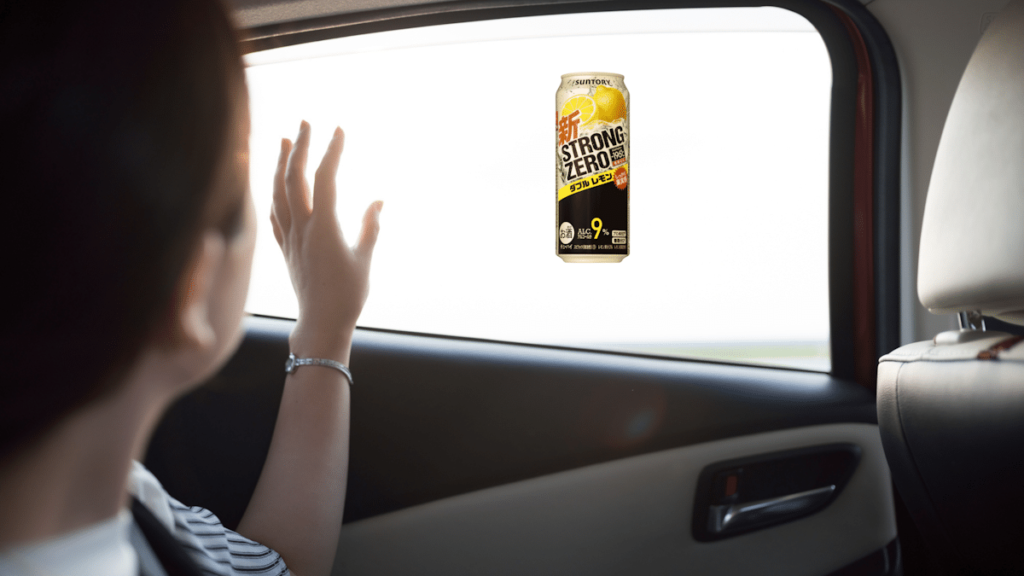[ad_1]
The notorious Strong series consumed for a cheap pregame on nights out in Japan is disappearing from shelves. After years of health professionals decrying the series for its adverse health effects, many manufacturers are now saying they’ll stop selling the products for good.
Why you might see zero Strong Zeros soon

On February 19th, the Ministry of Health released guidelines sounding the alarm on drinking. New findings say a single long can of beer raises risks of colon cancer.
The warning follows Asahi Beer and Sapporo Beer’s respective announcements of plans to end new product lines of canned chuhai (fruity alcoholic drinks made with shochu or vodka) with 8% or more alcohol.
“We haven’t announced this as a company, but our plan is to not sell new products with an alcohol percentage of over 8% moving forward. However, we will continue the sales of our current products,” Asahi Group Japan told Business Insider Japan.
“Taking into consideration the increasing awareness of health and the latest trends, [our decision to not sell new strong series] was the result of comprehensively discussing the portfolio of our ready-to-drink (RTD) products,” Sapporo Beer responded.
Kirin Beer has begun talks to determine the future prospects of its own Strong series.
Advertisements
The Strong chuhai boom (and then bust)
The demand for the Strong series of chuhai began to increase around 2010, popularized as a way to get drunk cheaply.
Asahi joined the Strong series market in 2010, following the beginning of sales for 8% alcohol products by Kirin in 2008 with Hyōketsu Strong and Suntory in 2009 with Strong Zero.
“Under the concept of ‘exciting but refreshing,’ we began developing products like Asahi Sparks that were 9% alcohol and 70% less sugar. We started with a small scale of about 5 million boxes. But because each company rolled out more product lines, the market expanded,” says Takehiro Satō, deputy director of Asahi’s RTD marketing team.
With inclining demand came diversification of products at Asahi too, resulting in the Asahi Mogitate series and Strong series from the Wilkinson brand. By the end of 2020, Asahi had 79 types of products in its Strong series lineup.
The 4 giants of alcohol and their chuhai lines
According to the marketing research agency Intage, strong series sales in 2020 were valued at approximately ¥177.600 billion and decreased, dropping to ¥136.5 billion last year.
Acting on the market’s contraction, Asahi, which had sold 79 brands in its Strong series lineup, only has one offer today. Sapporo has also cut down its Strong series from 20 brands in 2018 to one today.
Dominating the Strong series market are Suntory and Kirin, making up 23.7% of the entire market for domestic sales of canned chuhai and highballs with 9% alcohol in 2023. Suntory, with its brand -196℃, and Kirin’s signature Hyōketsu (氷結) both have a large stake in the Strong series market and are seemingly hesitant to retreat as Asahi and Sapporo.
Asahi is leading the retreat and pivoting to target health-conscious consumers. New lower-alcohol releases include its 3.5% Super Dry (normally 5%) and a new drink line lower in total alcohol percentage called Dry Crystal.
Government and consumers seek healthier future with chuhai retreat

For several years, some health professionals have sounded the alarm about “Strong” chuhai drinks. While not as high in alcohol as distilled spirits, wine, or sake, Strong drinks are highly palatable and easy to over-indulge. That led one doctor to make headlines when he branded Strong Zero “a dangerous drug”.
2020 was also the year Asahi began hailing “smart drinking” to cater to health concerns among customers. That ultimately ended sales for Asahi Mogitate in 2022 and the Wilkinson brand’s Strong series in September last year.
The nail in the coffin for Asahi’s Strong series was the March 2021 report by the Health Ministry that detailed the government’s countermeasure plans against alcohol-related health disorders.
The plan did not name any specific products but urged consumers to “drink Strong series products appropriately.” It also asked manufacturers to display alcohol amounts not only in percentages but in grams as well. For example, today the can for Asahi’s Clear Cool Strong reads not only “9%” but also “25.2g” for total alcohol volume.
Rise in sober living in Japan
The Ministry of Health says that consuming more than 40 grams for men and 20 grams for women increases the risk of lifestyle diseases like cancer. 20 grams of alcohol is the equivalent of two glasses of wine at 12% alcohol.
This movement doesn’t just come from the government or the alcohol companies. The market for the Strong series is gradually shrinking as health awareness rises. This is especially true among youth who label themselves “sober curious.” Sober curious people are those who are “not suppressing their desire to drink alcohol, but those who are choosing a lifestyle without drinking in a positive mindset,” according to Asahi Group Holdings.
Fewer young people in Japan are also swearing off alcohol entirely. Non-alcoholic bars and non-alcoholic beer brands have risen as the market for those seeking a booze-free experience continues to swell.
Sources
ストロング系酎ハイ撤退の動き活発化 ガイドライン公表で対応迫られるキリンとサントリー. 産経新聞
相次ぐ「ストロング系」の新規販売終了は撤退か戦略か。サントリー、キリンの対応は?. BUSINESS INSIDER JAPAN
ビールロング缶1日1本で大腸がんの危険、女性は男性より少量・短期間でアルコール性肝硬変も. 読売新聞
[ad_2]
Source link



